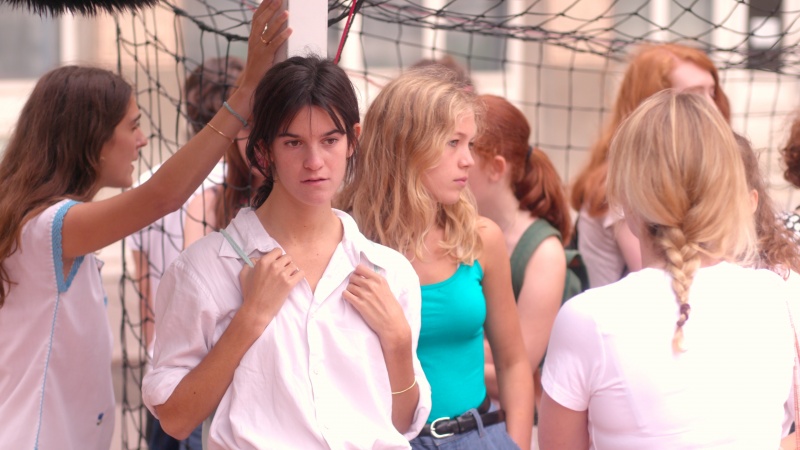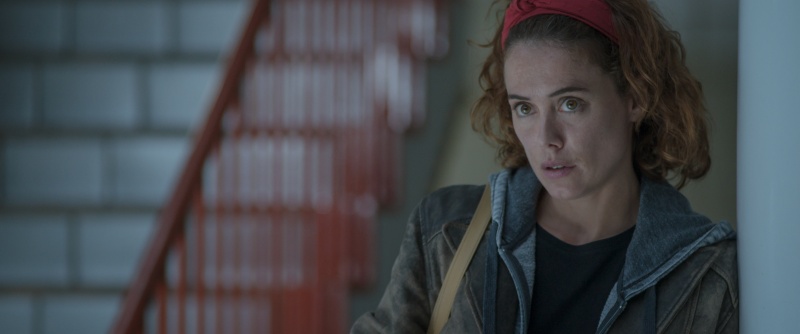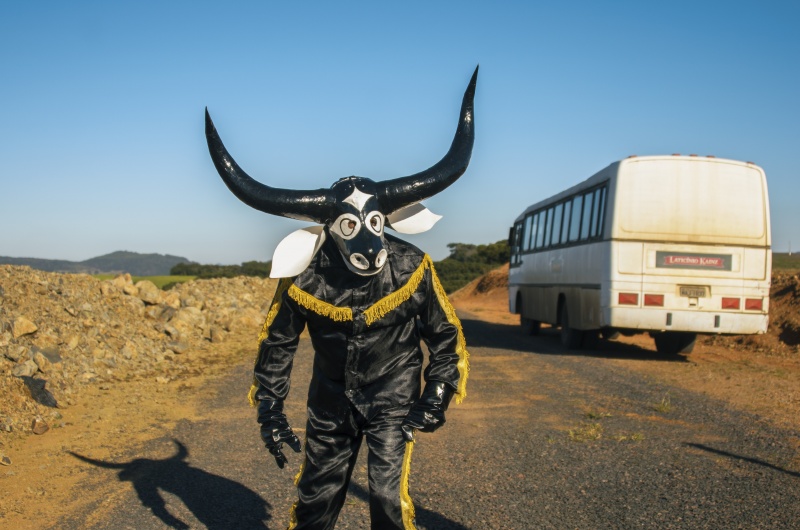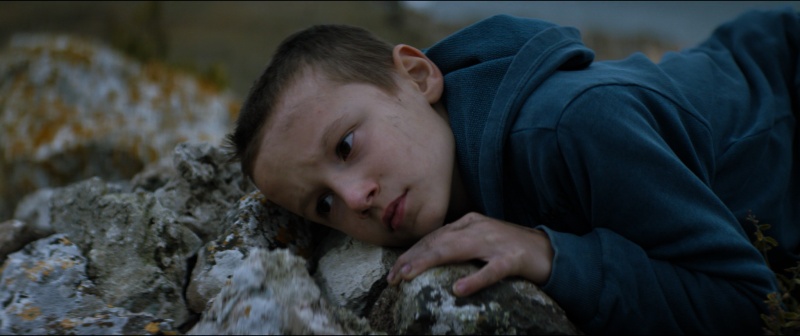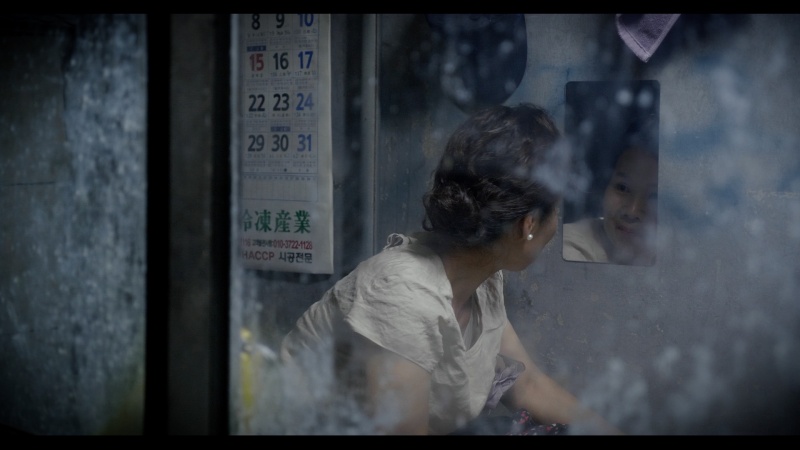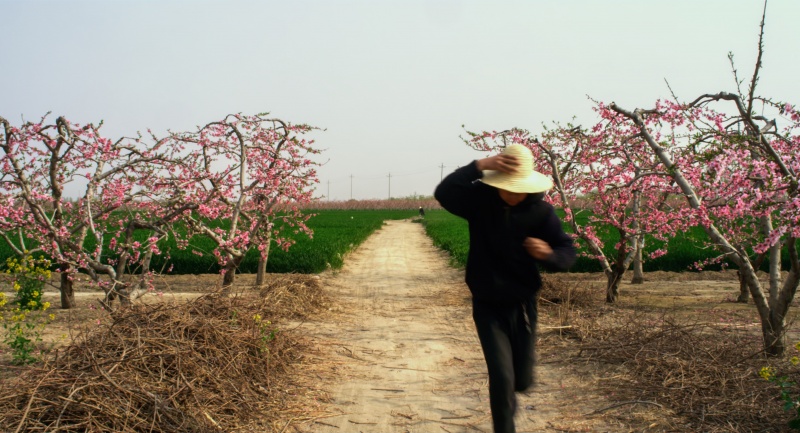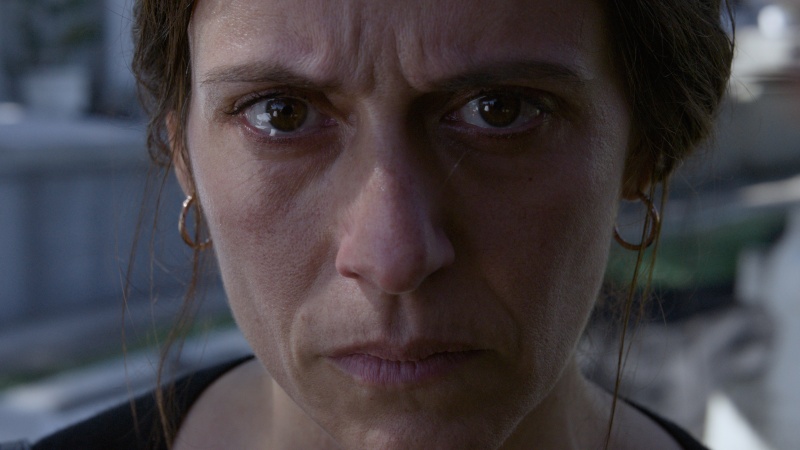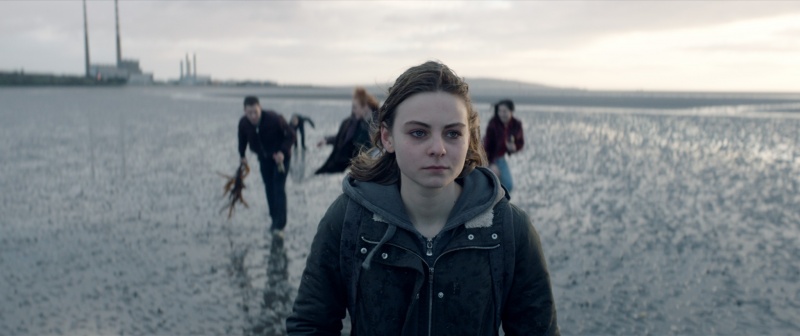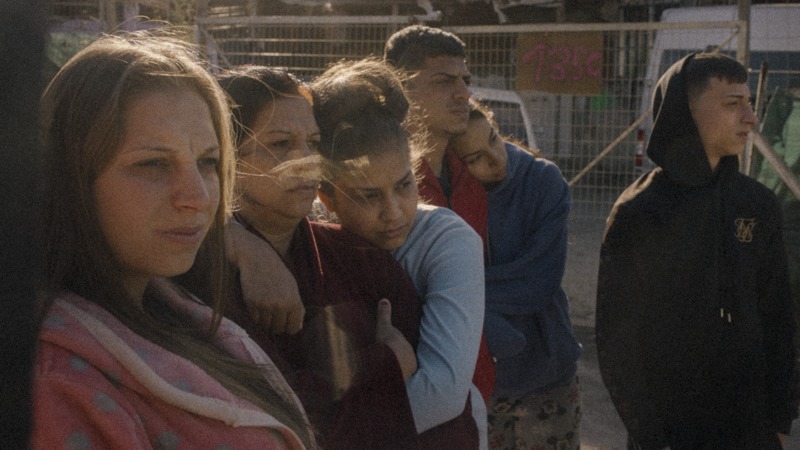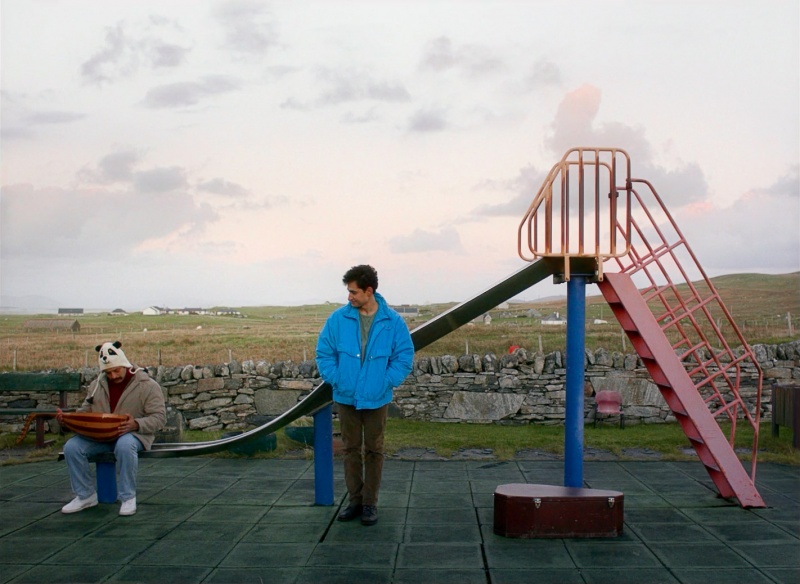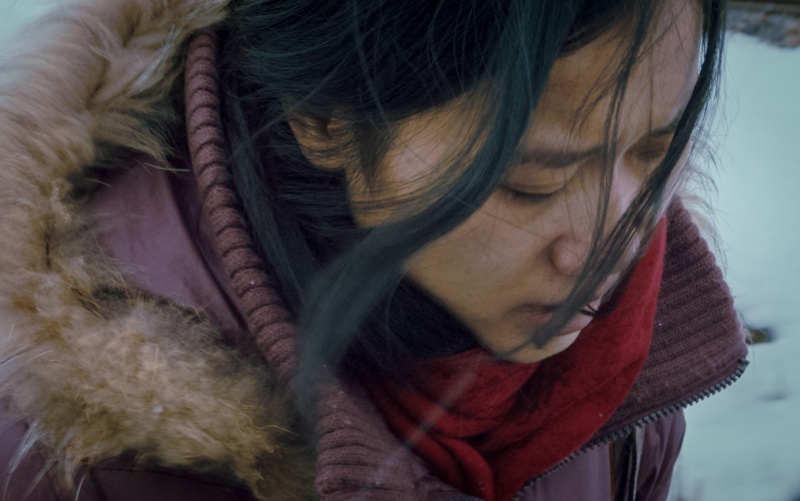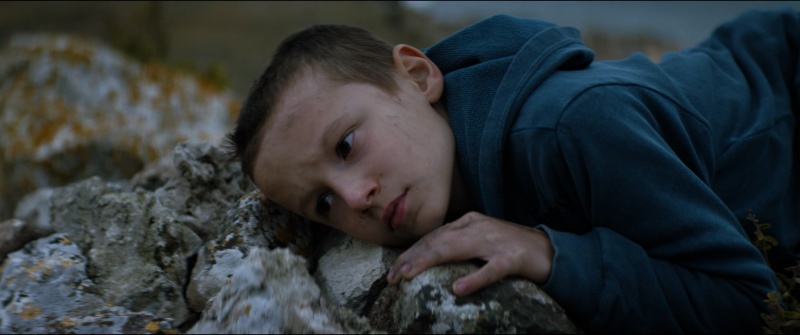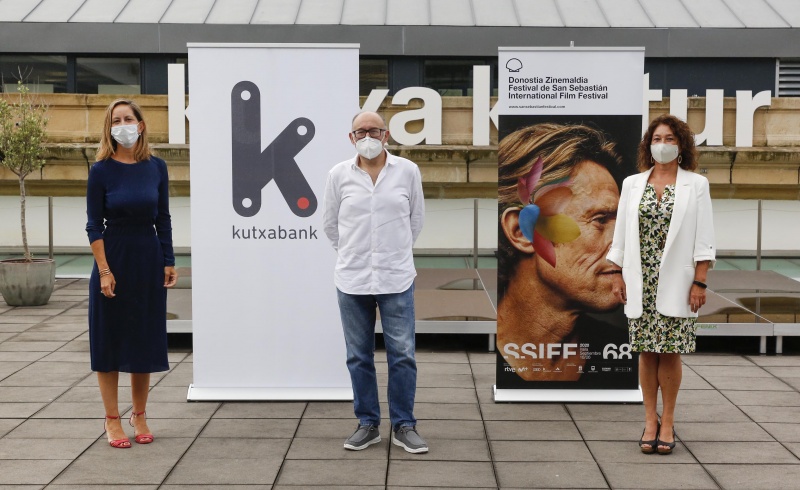A total of eleven productions from Brazil, China, France, Ireland, Japan, the Netherlands, Poland, South Korea, Spain, Russia, the United Kingdom and Vietnam will compete for the Kutxabank-New Directors Award at the San Sebastian Festival, to celebrate its 68th edition from September 18 to 26. Seven of those selected are first works, while the others are the second films by their authors, as the San Sebastian Festival Director, José Luis Rebordinos, and the director of the Kutxabank Gipuzkoa Network, Ainhoa Arruabarrena, explained at today’s press conference.
Among those presenting their feature film debuts are four filmmakers with projects previously conceptualised, awarded or programmed at the San Sebastian Festival. This is the case of Isabel Lamberti (Bühl, 1987), a moviemaker born in Germany and raised in Spain and the Netherlands who, after winning the Torino Award at Nest, San Sebastian Festival’s international film students meeting, will now compete with La última primavera / Last Days of Spring, a feature film set in Madrid’s Cañada Real shanty town. Similarly, David Pérez Sañudo (Bilbao, 1987), who participated in Zinemira-Kimuak in 2017 with the short film Aprieta pero raramente ahoga (2017), will present Ane, a feature film about a mother embroiled in the search for her missing daughter.
For his part, the Brazilian João Paulo Miranda Maria (Porto Feliz, São Paulo, 1982), winner of the European Distributors and Exhibitors Award at Films in Progress 37 Toulouse, will present Casa de antiguidades / Memory House, a spiritual and fantastical story encapsulating the social and racial tensions of modern day Brazil, while the Russian Grigory Kolomytsev (Krasnodar, 1990), a participant in the 2018 Ikusmira Berriak residencies, narrates a child’s discovery of a mystical creature in Chupacabra.
Another of the first-time directors is the Korean Kim Mi-jo (Jeonju, 1989), who recently garnered the Grand Prix in the Korean competition at the 2020 Jeonju Festival with Gal-mae-gi / Gull, the story of a middle-aged victim of rape. The Chinese filmmaker Xingyi Dong (Anyang, 1986) debuts with Gē shēng yuán hé màn bàn pāi / Slow Singing, whose lead character is a man who returns to his hometown after his release from jail, while Suzanne Lindon (Paris, 2000) directs and stars in 16 printemps / Spring Blossom, about a young girl torn between her love for an older man and enjoying her adolescent life.
Second films
On the other hand, four filmmakers will compete in New Directors with their second feature films. Limbo, the latest participation by Ben Sharrock (Edinburgh, 1988) in New Directors after debuting with Pikadero (2015), brings an intercultural satire on the difficulties and hopes of refugees. Also returning to San Sebastian is Imanol Rayo (Pamplona, 1984), winner of the Zinemira Award with Bi anai (2011) who in Hil kanpaiak / Death Knell takes Miren Gorrotxategi’s novel 33 ezkil to the big screen.
Finally, having obtained international repercussion with his first film, Silent Night (2017), the Polish director Piotr Domalewski (Lomza, 1983) will come to San Sebastian for the first time with Jak Najdalej Stąd / I Never Cry, a film about a young girl who travels to Ireland to collect her father’s body when he dies in an accident at work. Also coming to the city is Japan’s Akio Fujimoto (Osaka, 1988), author of Boku no kaeru basho / Passage of Life (2017), which won two awards in the Asian Future section at Tokyo International Film Festival; his second film, Umibe no kanojotachi / Along the Sea, follows a Vietnamese woman who escapes from her workplace as a technical trainee and starts to work illegally in Japan in order to support her family.
All of the films selected for New Directors will be screened as world premieres, with the exception of Gal-mae-gi / Gull, which will be an international premiere, and Limbo and 16 printemps, which will be European premieres. Furthermore, the latter two films and Memory House figure on the list of films selected by the Festival de Cannes for this year in which the COVID-19 pandemic has prevented it from celebrating its 73rd edition. For its part, The Last Spring had been included in the parallel programme presented in Cannes by ACID, the Association for the Distribution of Independent Cinema.
Suzanne is 16. People her own age bore her. Every day on her way to high school, she passes a theatre. There, she meets an older man, who becomes obsessed with her. Despite their age difference, they find in each other an answer to their ennui and fall in love. But Suzanne is afraid she's missing out on life, that life of a 16-year-old which she had struggled so much to enjoy in the same way as her peers.
The Basque Country, 2009. Lide is a security guard for the high-speed train works, a project that generates social protests in the streets. Coming home after work and partying all night, she makes breakfast for two, but her teenage daughter, Ane, is nowhere to be found. The next day, she’s still not back. Lide isn’t particularly worried, believing that her disappearance is probably connected to their huge argument of the previous day. Looking through Ane’s things, she gradually realises that her daughter is a stranger to her. Debut film.
Modern day Brazil, but lost in time. Cristovam, a native black man from the rural north, moves to a former Austrian colony in the south to work in a milk factory. Confronted with xenophobic conservative people, he feels isolated and estranged from the white world. He discovers an abandoned house, filled with objects and memorabilia reminding him of his origins. He settles in, reconnecting with his roots. As if this memory house were alive, more objects start to appear. Slowly, Cristovam begins a metamorphosis.
Nine year-old Andrey lives on the outskirts of a small village near the sea. His mother wants to put him into an orphanage. Andrey is scared by the perspective and understands that his life will drastically change. One stormy day he finds a dog on the beach and decides that it is the mystical beast known as Chupacabra, a goat vampire which will work a miracle. Debut film developed at the Ikusmira Berriak residencies programme.
O-bok, a 61-year-old woman, has been running a seafood store in a fish market for decades. One day she has her first meeting with her daughter In-ae's future parents-in-law. That night, she is raped by Gi-taek. At first, O-bok pretends that nothing has happened and tries to go about her life as usual. A while later, she tells In-ae about the rape. The police calls in Gi-taek to investigate, and the story of the incident begins to spread around the market. Debut film.
Junsheng returns to his hometown soon after his release from prison only to feel estranged from his place of birth. Although he hasn't been back for years, he still believes that he is the toughest young man in the village. After various painful experiences, he realises that what felt like a short absence is in fact an unbridgeable gap. Debut film.
Human bones are found at the Garizmendi farmhouse. Farmers Fermín and Karmen call their son Néstor, who reports the matter to the authorities. But, when the agents turn up, the bones are gone. Suddenly, the bell on the nearby chapel begins to peal. This bad omen announces the coming of tragic events and reopens old wounds within the family and those around it. Second feature film by its director.
Ola sets off to Ireland to bring her father's body back to Poland after he dies in a building site accident. But never mind her dad, Ola wants to know if he had saved money for the car he had promised her. Dealing with foreign bureaucracy in her own streetwise way, Ola will get to know her father. Second feature film by its director.
The Gabarre-Mendoza family is celebrating their grandson’s birthday when a police inspection interrupts the party. In La Cañada Real, a shanty town outside Madrid, tensions are running high between the officials and the inhabitants given that the land has been sold and the families must leave the homes they put up with their own hands. The mother, Augustina, once full of laughter, is now tormented by fear; the father, David, a hardworking scrap merchant, tries to find a solution but is let down by the bureaucratic system. Meanwhile, the younger members of the family—David Jr, the adolescent mother and daughter-in-law Maria and the young Alejandro—struggle in their own way with their lives in transition. Debut film.
Omar is a promising young musician. Separated from his Syrian family, he is stuck on a remote Scottish island awaiting the fate of his asylum request. Due to the plaster-cast on his arm, he cannot play his oud and instead wanders the epic landscapes searching for answers to a complex past and daunting future. He may be stuck, but he is not alone. Omar and his new flatmates attend outrageously misjudged cultural awareness classes, binge the Friends boxset, debating whether Ross and Rachel were on a break and Freddie Mercury-obsessed Farhad tries to convince Omar to participate in the local open mic night. Second feature film by its director.
Phuong, An, and Nhu are Vietnamese women in their early 20s. The three become illegal residents in Japan after escaping from their workplace as technical trainees. An contacts a broker to help them find work. The broker takes them to a fisherman's ice-covered hut where they can stay in exchange for labour. They are happy because, as well as finding a job, they have also doubled their salary. As they start their work, Phuong suddenly falls to the ground, stricken with severe pain. Worried, An and Nhu take Phuong to a hospital, but they are refused admission for not having an ID card. Second feature film by its director.


